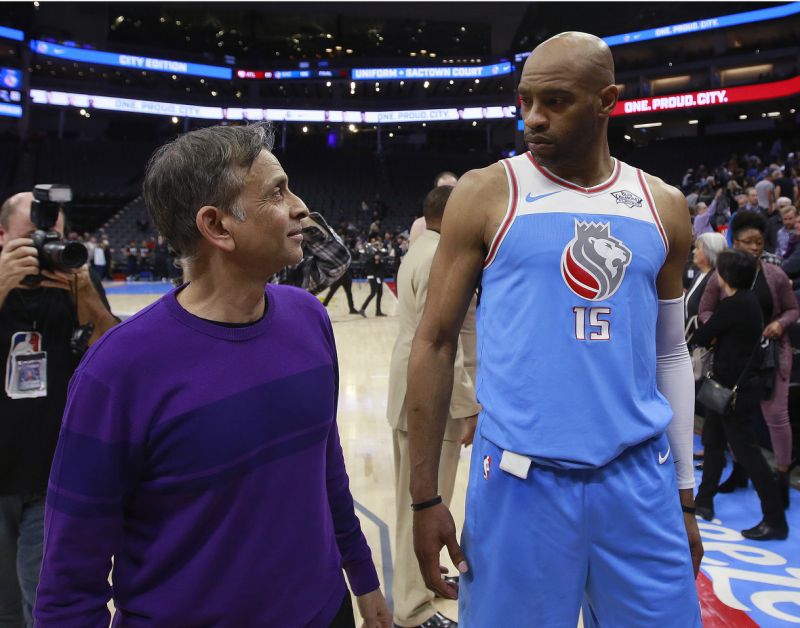
The Sacramento Kings are now mining ethereum, the team announced on Wednesday.
The team began mining the cryptocurrency three weeks ago using Nvidia mining rigs purchased from MiningStore.com, and is now ready to launch a charitable program, Mining For Good, that will give the majority of the ether to a local community group, Build Black, to sell or hold the ether as it chooses.
Of course, there’s a lot to unpack here.
For starters, some quick cryptocurrency background for sports fans: Ethereum is a decentralized platform for smart contracts that went live in 2015; the digital token of Ethereum is ether. Like bitcoin, ether runs on a blockchain, a peer-to-peer, public, immutable ledger that records all ether transactions. Mining cryptocurrency involves setting up expensive computers that solve complex math problems in real-time to win the right to upload (“mine”) bundles of transaction data (or “blocks”) to the blockchain. Miners receive a tiny reward of cryptocurrency when they successfully mine.
Kings owner Vivek Ranadive is the founder of Tibco, a real-time computing software company. As a result, the Kings are thought to be one of the more tech-savvy teams, along with the Golden State Warriors, whose owners are all Silicon Valley venture capitalists. (Unlike the Warriors, the Kings don’t haven’t won their division since 2003.) The new Kings stadium, Golden 1 Center, opened in 2016 and boasts solar panels; Wired called the stadium, “pretty much a giant Tesla.” Fast Company named the Kings the “most innovative company in sports” last year.
In 2014, the Kings became the first NBA team to accept bitcoin as payment at its merchandise store and for season tickets.
“Vivek is the big vision guy,” Kings CTO Ryan Montoya tells Yahoo Finance. “He’s always pushing us to use technology to improve the fan experience, and he’s always asking us how we can use tech and innovation to do good and give back to the community.”
Montoya says that since accepting bitcoin, Ranadive has driven the effort to find another way for the Kings to embrace blockchain.
“We know blockchain is going to revolutionize the world,” Montoya says. “So, how can we be ahead of the curve and start to utilize blockchain in different parts of the business? Vivek said, ‘What can we do with cryptocurrency to give back to the community?’ It was obvious to us: Let’s start mining cryptocurrency. Let’s mine cryptocurrency and give the proceeds back to groups that could use a little extra help. And we are superfans of Ethereum.”
The effort has required three groups within the Kings front office to brush up on crypto: IT, which was mostly comprised of crypto enthusiasts already; the innovation group, which had the task of explaining the appeal of crypto and blockchain to other parts of the business; and the team’s community outreach group, who decided which local group the team would work with on the mining program.
For now, the mining project has no application on the basketball court, and no players are involved. But Montoya says, “I think when players come to Sacramento, they know we’re a tech-savvy group and if there’s anything we can do to introduce them to tech companies, we can do that. These players are younger guys, I’m confident they will have an interest in how this works.”
MiningStore.com supplied the mining machines to the team at a discount, and the mining began. It is basically an endowment program: In one year, the team will meet with Build Black and say, as Montoya envisions it, “Here’s where we are, here’s how much ether we’ve been able to mine, and we’ll ask them what they want to do with it. Build Black may say, ‘Let’s just keep this ether’ if the price is going up in value. Or we may decide at that time to buy more rigs. It’s really a joint effort. But if they say, ‘We’ll take the money,’ then that’s what we’ll do.”
Although this announcement is a first by an NBA team, it is hardly the first use case for Ethereum in sports: the smart-contract platform has been hailed as a way to authenticate one-of-a-kind sports memorabilia.
